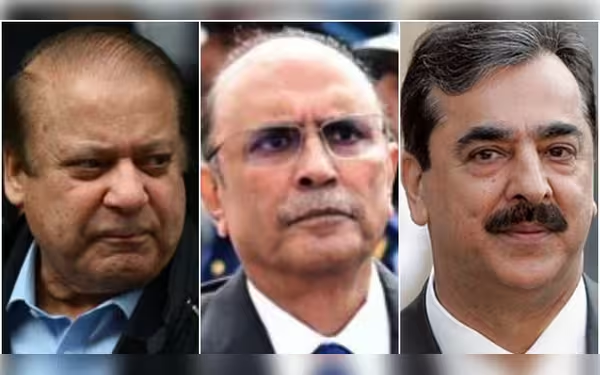Saturday, November 16, 2024 10:22 PM
Toshakhana Vehicles Case: Court Reserves Verdict on NAB References
- Court reserves verdict on Toshakhana vehicles case.
- NAB references involve high-profile political figures.
- Public demands accountability in governance.
 Image Credits: thenews.com.pk
Image Credits: thenews.com.pkThe court reserves its verdict on the Toshakhana vehicles case involving high-profile politicians, raising questions about accountability in Pakistan.
The Toshakhana, a government repository for gifts received by officials, has been at the center of controversy in Pakistan, particularly regarding the vehicles that have been acquired from this facility. The issue gained significant attention when the National Accountability Bureau (NAB) filed a reference in 2020 against several high-profile figures, including former Prime Ministers and the current President. The allegations suggest that these leaders obtained luxury vehicles from the Toshakhana by only paying 15% of their actual price, a practice that raises serious ethical questions about the use of public resources.
Recently, an accountability court presided over by Judge Abida Sajjad heard a plea from the NAB concerning this matter. The court has reserved its verdict, which is expected to be announced on October 14. This decision is crucial as it could determine whether the references against these prominent individuals will be sent back to NAB for further investigation. The case specifically implicates former Prime Minister Nawaz Sharif and former President Asif Ali Zardari, with the former Prime Minister Yousaf Raza Gilani allegedly facilitating these transactions.
The implications of this case are far-reaching. If the court rules in favor of the NAB, it could lead to renewed scrutiny of the actions of these leaders and potentially pave the way for accountability in a system often criticized for its lack of transparency. On the other hand, if the verdict favors the accused, it may reinforce the perception of impunity among the political elite in Pakistan.
As the date for the verdict approaches, the public's interest in this case continues to grow. Citizens are keenly aware of the need for accountability in governance, especially when it comes to the misuse of power and public funds. The Toshakhana case serves as a reminder of the importance of ethical leadership and the necessity for systems that hold leaders accountable for their actions.
The Toshakhana vehicles case is not just about luxury cars; it symbolizes a larger struggle for integrity and accountability in Pakistan's political landscape. As the court prepares to announce its decision, the outcome will likely resonate beyond the courtroom, influencing public trust in the government and the future of political accountability in the country.













